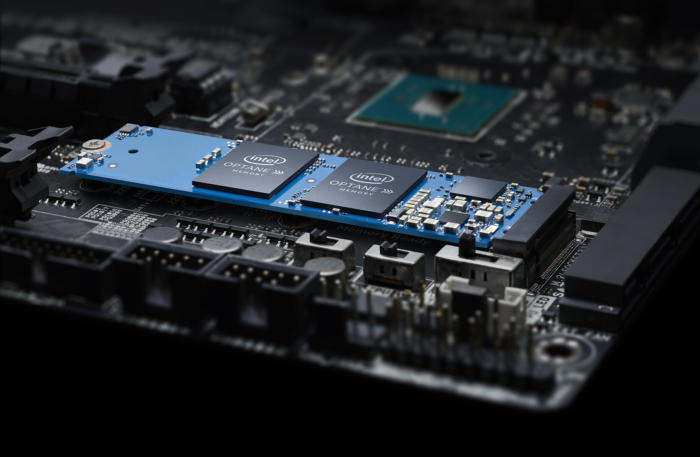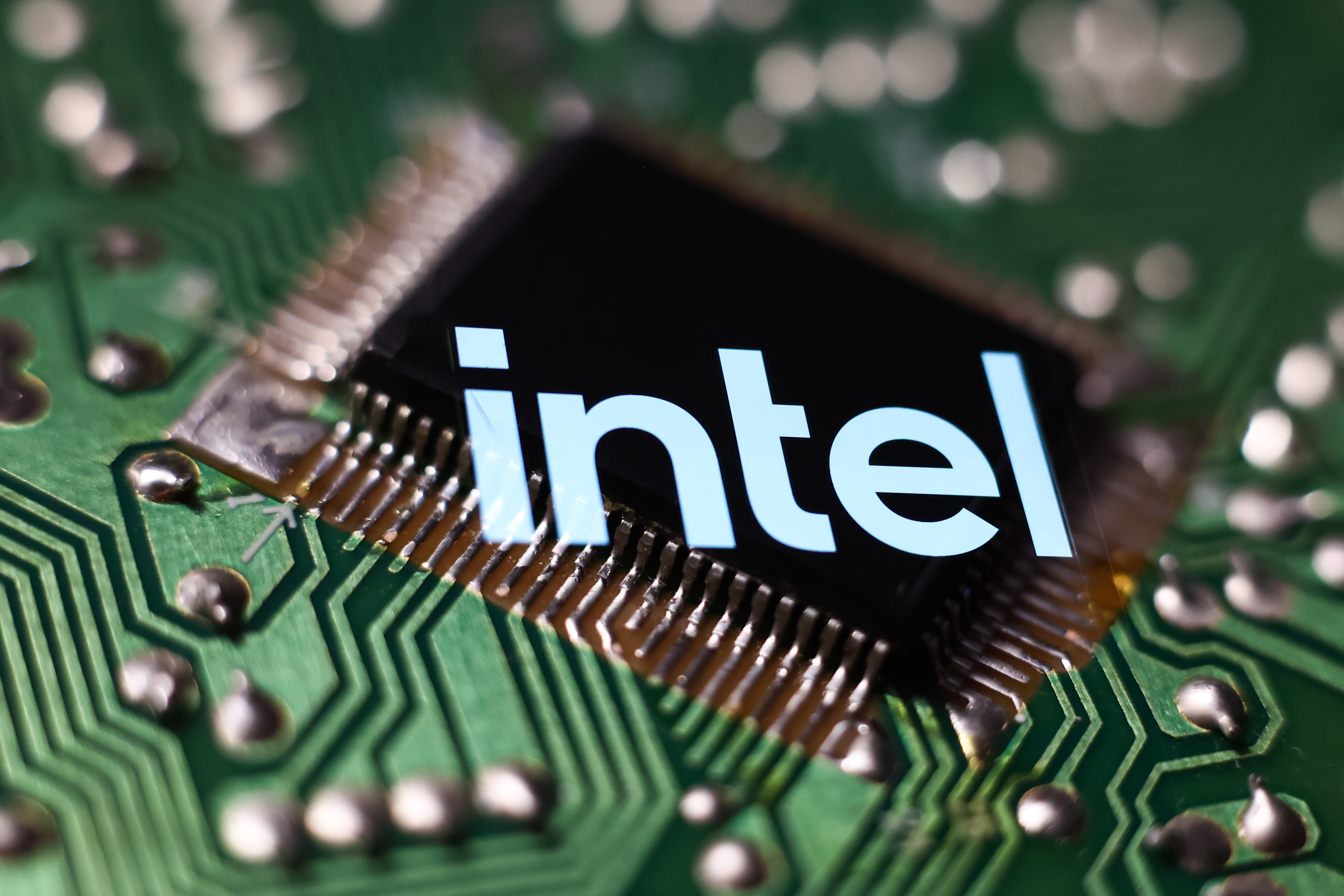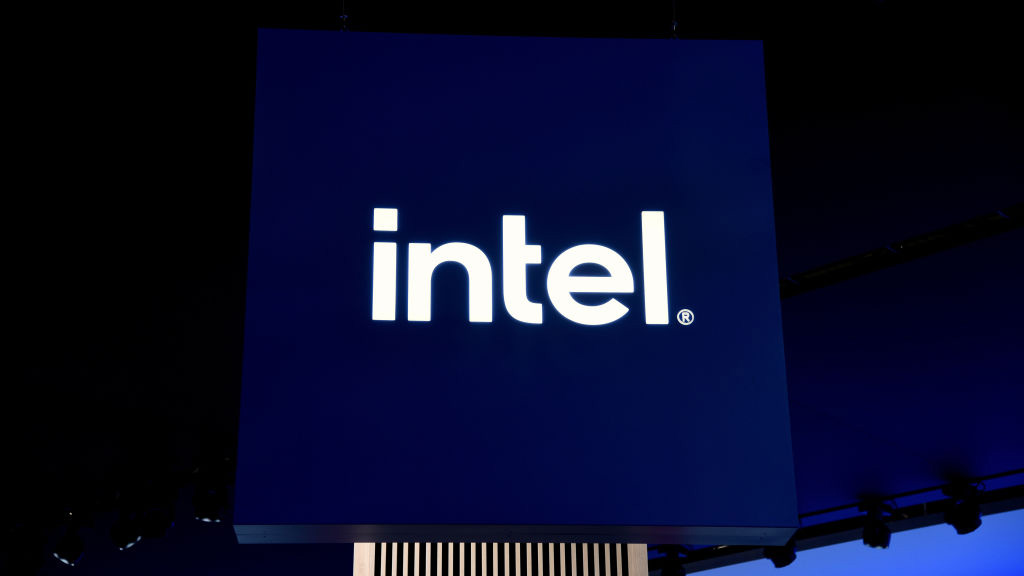Intel's Optane aims to give hard drives the speed of SSDs
Intel Optane Memory module 'can increase PC performance by up to 30%'

Intel has been working on a technology that it claims will boost older hard drives to the speeds of ultra-fast solid-state-drives (SSDs), a claim that could revitalise the aging hardware.
The technology, known as Intel Optane Memory, is a specialised chip storage chip that sits in the M.2 storage slot on a motherboard, and comes as standard on boards designed for Intel's latest generation of Kaby Lake processors.
It is currently available in 16GB or 32GB variants, providing a blisteringly fast cache that is able to increase the speed of older spinning hard drives.
The memory module is capable of enhancing multiple aspects of a machine's performance, but most interestingly it promises to make hard drive access speeds up to 14 times faster. That means a traditional 1TB 7200RPM hard drive would be twice as responsive during daily tasks.
Overall system performance would also increase by up to 30%, and actions like opening a clean browser would happen up to five times faster.
Typically, processors can only access data as fast as the storage device will allow, which is often dependent on recall speeds and the transfer rate over the motherboard's connectors. By placing the memory module between the processor and SATA-based storage devices, such as hard drives or SSDs, it is able to store data and commonly-used programs in close proximity to the processor.
The technology then chains together memory and storage into a single virtual drive that is accessible to the OS, which then uses Intel's Rapid Storage Technology to accelerate the rate at which actions can be performed, and prioritise the services you use most often. This has the effect of increasing start and boot times, file searching, multitasking, and the launching of applications.
Get the ITPro daily newsletter
Sign up today and you will receive a free copy of our Future Focus 2025 report - the leading guidance on AI, cybersecurity and other IT challenges as per 700+ senior executives
RAM has traditionally filled the role of storing frequently-used data for the processor to quickly access, but that technology is expensive to create at high capacities.
Despite its name, Intel Optane Memory does not replace current RAM modules found on PC motherboards, nor does it act in the same way to power applications. Instead, the module is an optional performance enhancer that helps you squeeze the most out of current technology.
While Intel has confirmed Optane Memory will boost the speeds of SSD storage, the biggest benefits will come from its effect on older hard drives that are generally much slower.
Intel Optane Memory is set to launch on 24 April, priced at $44 and $77 for 16GB and 32GB respectively, although Intel has yet to reveal pricing and availability for the UK market.
The technology is only compatible with Intel's 7th generation Core i3, i5 and i7 processors, or Intel 200 series chipsets on desktop PC configurations, although laptop and notebook support will be available later.
Picture courtesy of Intel
Dale Walker is a contributor specializing in cybersecurity, data protection, and IT regulations. He was the former managing editor at ITPro, as well as its sibling sites CloudPro and ChannelPro. He spent a number of years reporting for ITPro from numerous domestic and international events, including IBM, Red Hat, Google, and has been a regular reporter for Microsoft's various yearly showcases, including Ignite.
-
 Should AI PCs be part of your next hardware refresh?
Should AI PCs be part of your next hardware refresh?AI PCs are fast becoming a business staple and a surefire way to future-proof your business
By Bobby Hellard Published
-
 Westcon-Comstor and Vectra AI launch brace of new channel initiatives
Westcon-Comstor and Vectra AI launch brace of new channel initiativesNews Westcon-Comstor and Vectra AI have announced the launch of two new channel growth initiatives focused on the managed security service provider (MSSP) space and AWS Marketplace.
By Daniel Todd Published
-
 Gaining timely insights with AI inferencing at the edge
Gaining timely insights with AI inferencing at the edgeWhitepaper Business differentiation in an AI-everywhere era
By ITPro Published
-
 Scaling AI from pilot to production: Maximize AI impact with HPE & Intel
Scaling AI from pilot to production: Maximize AI impact with HPE & IntelWhitepaper Transform AI proof-of-concepts into full-scale implementations
By ITPro Published
-
 UK supercomputer boom as HPE and Dell receive funding for new AI cluster
UK supercomputer boom as HPE and Dell receive funding for new AI clusterNews The UK’s AI computing capabilities will increase by an order of magnitude in 2024
By Rory Bathgate Published
-
 AI gold rush continues as Hugging Face snags $235 million from IBM
AI gold rush continues as Hugging Face snags $235 million from IBMNews The investment round, which brings the company's valuation to $4.5 billion, also includes Amazon, Google, Intel, and Salesforce
By Richard Speed Published
-
 Why is ASUS reviving Intel’s NUC mini-PC line?
Why is ASUS reviving Intel’s NUC mini-PC line?News The diminutive PC is to rise again while analysts look for the business case
By Richard Speed Published
-
 Intel targets AI hardware dominance by 2025
Intel targets AI hardware dominance by 2025News The chip giant's diverse range of CPUs, GPUs, and AI accelerators complement its commitment to an open AI ecosystem
By Rory Bathgate Published
-
 Why aren’t factories as smart as they could be?
Why aren’t factories as smart as they could be?Whitepaper How edge computing accelerates the journey to a remarkable factory
By ITPro Published
-
 Who needs Intel vPro®, An Intel® Evo™ Design, anyway?
Who needs Intel vPro®, An Intel® Evo™ Design, anyway?Sponsored With flexible work on the up, the demand for high performance on-the-go business laptops has never been greater
By ITPro Last updated